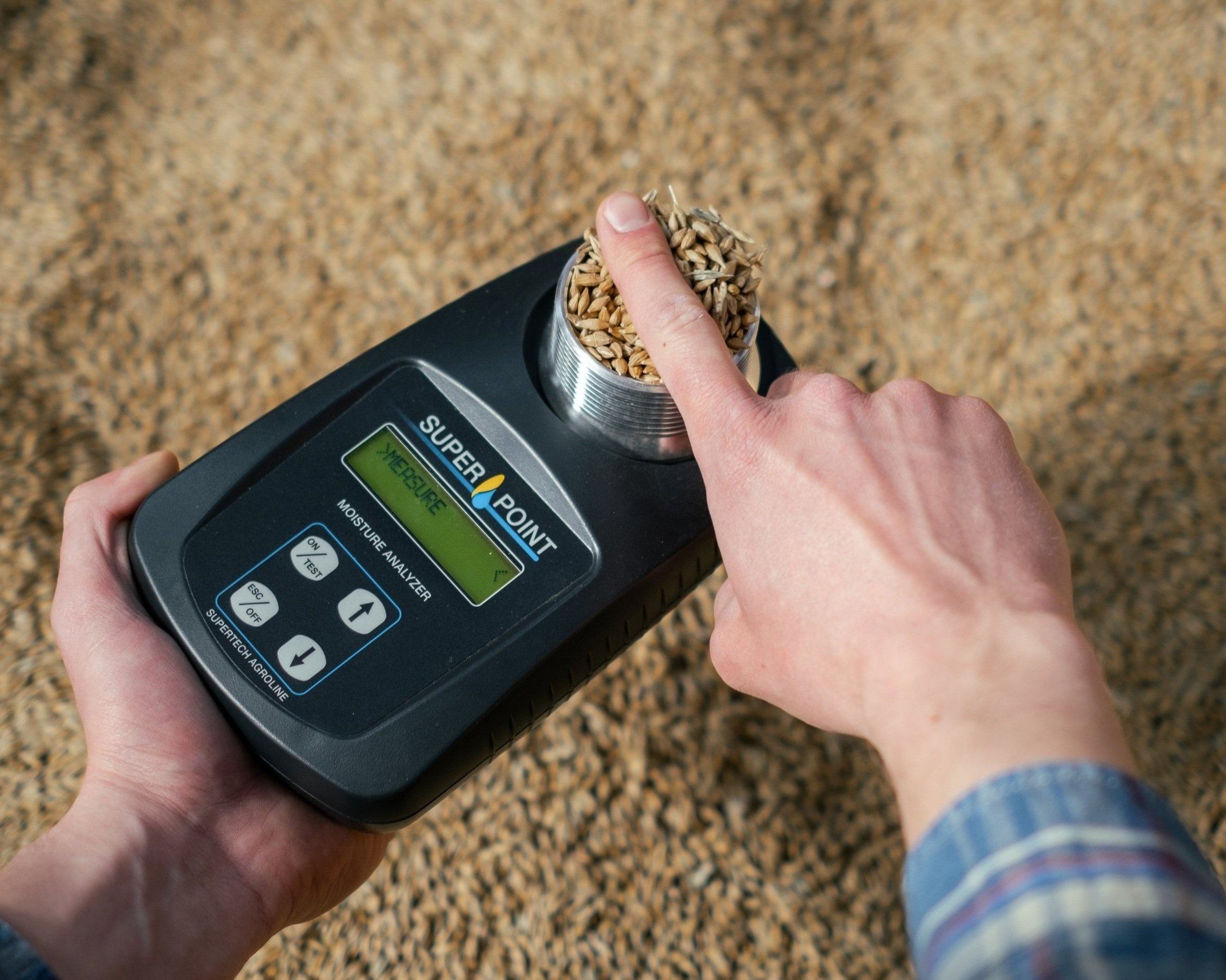Exactly How a Moisture Meter Can Improve Your Construction Tasks and Stop Damage
Exactly How a Moisture Meter Can Improve Your Construction Tasks and Stop Damage
Blog Article
The Ultimate Overview to Wetness Meters: A Comprehensive Overview and How They Can Conserve You Money
Wetness meters offer as vital tools in discovering and keeping track of moisture material in products, assisting in avoiding pricey damages and making sure the quality of products. Comprehending the subtleties of various types of wetness meters, their applications, and the possible cost-saving advantages they offer can be a game-changer for services and specialists alike.
Sorts Of Wetness Meters
Different kinds of dampness meters are offered for various applications in numerous sectors. One common type is the pin-type moisture meter, which measures the electric resistance in between two pins inserted into a material. This type is appropriate for timber, drywall, and various other structure products. Pinless dampness meters, on the various other hand, usage electromagnetic sensing unit plates to check a bigger area without triggering damage to the material's surface area. Moisture Meter. These meters are excellent for rapidly assessing moisture levels in big locations such as floors and walls.

Infrared moisture meters determine the thermal residential or commercial properties of a product to identify its moisture material non-invasively, making them valuable for applications where pin or pinless meters may not be ideal. Understanding the different kinds of moisture meters offered can aid industries select the most ideal tool for their details wetness dimension demands.

Benefits of Utilizing Moisture Meters
Dampness meters provide indispensable benefits in accurately keeping track of and examining dampness degrees in varied products and environments (Moisture Meter). One of the main advantages of making use of dampness meters is the prevention of possible damages brought on by excess moisture. By discovering and resolving high moisture levels beforehand, moisture meters help to avoid mold and mildew development, rot, and architectural damages in structures, conserving both time and cash on repairs. Additionally, moisture meters aid in making sure the high quality of products throughout building and construction or production procedures. By precisely determining wetness material, these tools assist maintain the stability of wood, drywall, concrete, and other materials, decreasing the danger of defects or failures.
In addition, using dampness meters can lead to increased power performance. In farming setups, dampness meters play a critical role in optimizing plant returns by making it possible for farmers to monitor dirt moisture degrees and make educated watering decisions.
How to Pick the Right Wetness Meter
Choosing the proper wetness meter includes considering key variables such as material compatibility, measurement variety, and calibration accuracy. When choosing a wetness meter, it's necessary to guarantee that the meter is ideal for the particular material you will be screening. Various products have differing electric properties that can affect wetness analyses, so picking a meter made for your product is vital for accurate results. Furthermore, consider the dimension variety of the moisture meter. Make sure that the meter can discover dampness levels within the range needed for your applications. Calibration precision is another essential factor to remember. Go with a wetness meter with reliable calibration to guarantee precise and constant analyses. Some meters may require routine calibration changes, so understanding the calibration procedure is very important. By very carefully evaluating these elements, you can pick a moisture meter that satisfies your requirements and offers accurate additional reading moisture measurements for your projects.
Appropriate Strategies for Dampness Meter Use

Price Savings Via Wetness Meter Applications
Just how can the tactical utilization of dampness meters lead to substantial expense financial savings across numerous sectors? In the farming sector, wetness meters help in establishing the ideal time for gathering plants, protecting against excess or over-drying wetness that can influence the final item's high quality.
Similarly, in building, wetness meters assist stop costly damages by identifying dampness levels in building materials, such as wood or concrete, which can bring about architectural issues if not resolved quickly. By identifying problem areas early, specialists can take corrective measures to stay clear of comprehensive fixings or substitutes, inevitably conserving money and time.
Moreover, in the food processing market, moisture meters are necessary for monitoring item high quality and making certain conformity with safety and security guidelines. By properly gauging moisture material in food, manufacturers can avoid spoilage, preserve freshness, and lower waste, leading to significant expense savings. On the whole, the strategic application of wetness meters is an important investment that can bring about considerable price decreases and boosted performance across various sectors.
Final Thought
In verdict, moisture my latest blog post meters are important tools for gauging and finding wetness levels in numerous materials. By using the right dampness meter and following appropriate techniques, users can properly prevent pricey damages created by excess moisture.
Wetness meters serve as essential devices in discovering and monitoring moisture web content in products, assisting in avoiding expensive damages and guaranteeing the top quality of products. Infrared wetness meters gauge the thermal properties of a material to identify its moisture material non-invasively, making them beneficial for applications where pin or pinless meters may not be appropriate.Wetness meters use invaluable benefits in accurately checking and analyzing dampness levels in varied products and settings. In farming setups, moisture meters play a critical function in enhancing plant yields by allowing farmers to keep track of soil wetness levels and make informed watering decisions.In conclusion, dampness meters are valuable devices for discovering and gauging dampness degrees in numerous materials.
Report this page